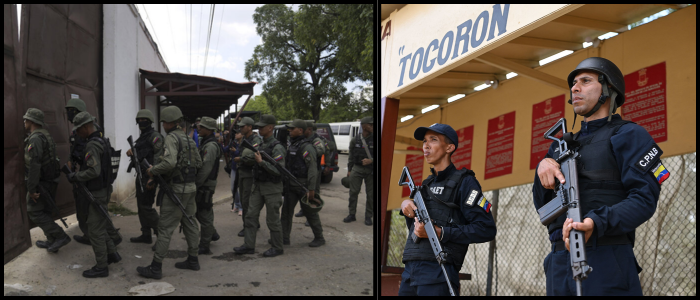"Tren de Aragua has caused fear and the flow of illegal drugs to the US under Mosquera Serrano's leadership," said Treasury Secretary Scott Bessent. The measures are part of a wider effort by President Donald Trump's administration to choke off criminal groups it says have operations along the border.
Trump Invokes Threat to Justify Emergency Tactics
The Trump administration in January named Tren de Aragua and other Latin American gangs as foreign terrorist organizations. This maneuver enabled the government to exercise emergency powers that are typically used only in response to threats to national security. One of those powers was the Alien Enemies Act of 1798, an obscure wartime law, which Trump used to expedite the deportation of suspected gang members.
Officials say the gang has ties to the regime of Venezuelan President Nicolas Maduro. The supposed link has also been employed to justify that foreign criminal organisations are a threat to the nation. More than 200 people were therefore deported and sent to a maximum-security prison in El Salvador. But the deportations have drawn broad condemnation and some say the deportees had no criminal record and were swept up due to their looks.
Questions Linger About Ties of Gang to Venezuela
While the administration says it is, an internal memo from April had suggested that the Venezuelan government might not be coordinating with Tren de Aragua. The memo said that while Venezeula's environment has provided a haven for the gang to operate, there is no evidence the Maduro regime is directing the gang's operations in the US and does not appear to be in control of its activities in the country, and it might see it as a threat.
Last July, the US and Colombia offered multimillion-dollar bounties for information on Mosquera Serrano and two other high-ranking gang members. That month, the group was designated a transnational criminal organization, which allowed law enforcement to accuse the gang of crimes other than murder, such as human trafficking, gender-based violence, drug smuggling and money laundering. Tren de Aragua has quickly expanded through Latin America, where it is connected to serious crimes, though experts believe it has a limited footprint in the US.
World

US Sanctions Alleged Tren de Aragua Leader

The US Treasury Department has blacklisted the alleged leader, Giovanni Vicente Mosquera Serrano, of a Venezuelan gang known as Tren de Aragua. In addition to the sanctions, Mosquera Serrano has been charged with terrorism and narcotics offences by the Department of Justice. He has been placed on the F.B.I.'s Ten Most Wanted Fugitives list, and the bureau is offering a reward of up to $3 million for information that would lead to his arrest or conviction.















